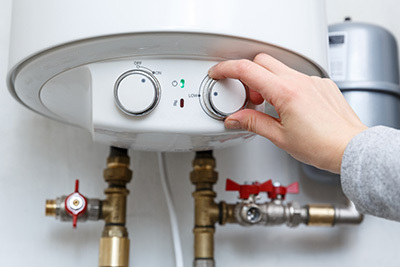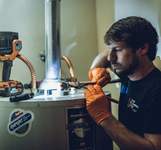
For homeowners in San Jose, managing home energy costs is a priority, especially when it comes to heating water, one of the most significant energy expenses in the household. An energy-efficient water heater not only reduces your monthly bills but also contributes to environmental conservation.
Why It Is Important to Have an Energy Efficient and Cost Effective Water Heater
Energy efficiency in water heaters is crucial for several reasons. Firstly, it directly affects your energy cost, as less energy is wasted. Secondly, efficient heaters reduce greenhouse gas emissions, which is important for environmental sustainability. Additionally, efficient systems often come with increased operational effectiveness, providing hot water quicker and more reliably.
Types of Water Heaters: Gas and Electric
When choosing a water heater, you typically have two primary options:
Gas Water Heaters: These are known for their quick heating capabilities. They use natural gas and tend to be more cost-effective in terms of operational cost but might have higher initial installation costs due to the gas lines and venting requirements.
Electric Water Heaters: These are usually easier and less costly to install and maintain. Although they can be more expensive over time depending on the electricity prices in your area, they benefit from not requiring venting systems.
Additionally, solar water heaters and tankless systems offer even greater efficiency. Solar heaters leverage free energy from the sun, drastically reducing heating costs, while tankless heaters provide hot water on demand without the energylosses associated with storing hot water.
Factors That Affect the Energy Efficiency of a Water Heater
Several factors influence how energy efficient a water heater can be:
Insulation: Well-insulated tanks retain heat better, reducing heating needs.
Thermostat settings: Lowering the temperature setting can significantly cut energy use.
Unit size and capacity: Having the right size of water heater for your household use prevents excessive energy waste.
Ways to Improve the Energy Efficiency of a Water Heater
Improving your water heater's efficiency can be straightforward with a few adjustments:
Regular Maintenance: Regularly draining the tank to remove sediment and checking for leaks can improve operational efficiency.
Upgrade Insulation: Adding an insulation blanket to older tanks can reduce heat loss.
Install Low-Flow Fixtures: Reducing the flow rate of faucets and showerheads decreases the amount of hot water used, thereby saving energy.
Timer Installation: Installing a timer can allow you to turn off the heater when it’s not needed, especially during peak energy cost times.
Saving Energy and Money with Efficient Water Heaters
Choosing the best water heater for your home can lead to significant energy and money saving. Modern energy-efficient models, although sometimes more costly upfront, can offer substantial savings over their lifespan in reduced energy bills. Residents in San Jose can benefit from various energy rebate programs when upgrading to more efficient water heating systems.
For professional advice on selecting and installing an energy-efficient water heater in San Jose, contact United Plumbing & Water Heaters. We offer a range of services from installation to maintenance and repair, ensuring you get the most out of your water heating system. Call us today to discuss how we can help you save energy and money with a more efficient water heater.
Original Source of the original story >> Energy Efficiency and Savings When Using a Water Heater






